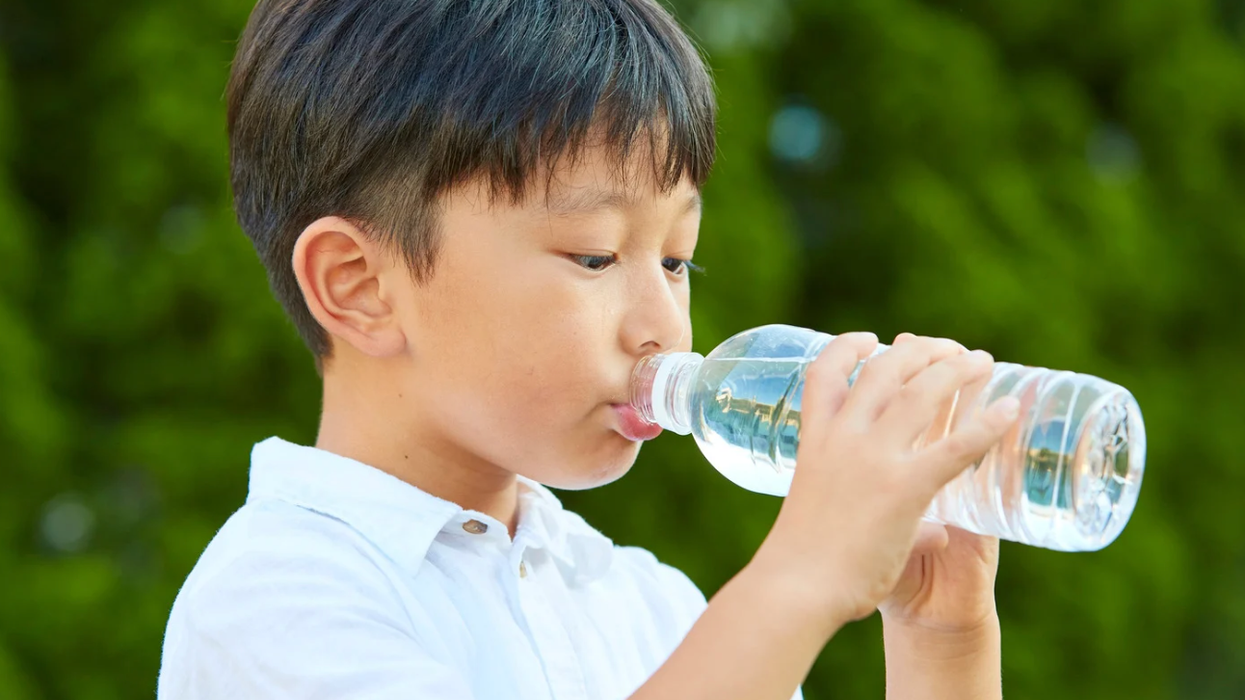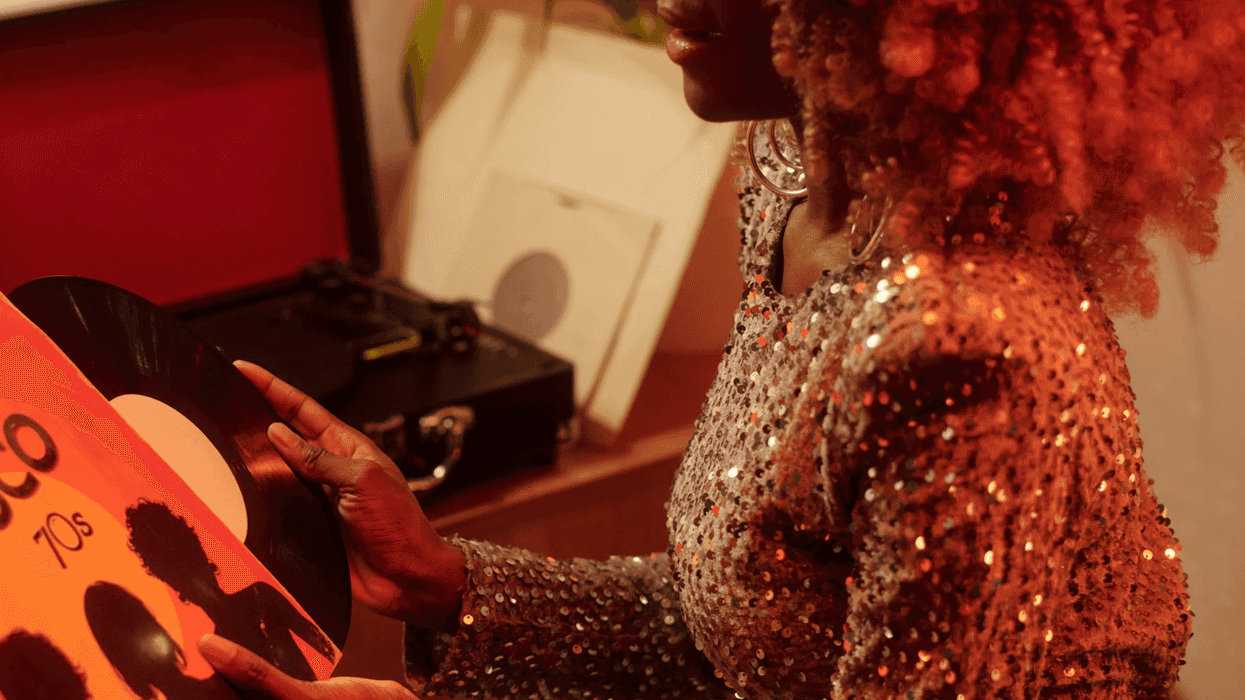It’s important to stay cool and hydrated, especially during the summer months. Many folks would buy a bottle of water from a convenience store and sometimes forget about it, leaving it in the car during a hot day and drinking it later. While not ideal, the water is there and you figure it's best not to waste it. However, you might want to reconsider.
Many publications, including the New York Times among others, say to drink bottled water left in a hot car with caution or to just avoid drinking it at all. This may seem terribly wasteful but your health could be at risk. There is more than one reason to either make sure you consume your beverages fully when they’re cold within the day or to throw them out if they’ve been left in your car during a hot day. Some folks even claim that it could possibly start a fire in the car.
@z100newyork PSA for anyone leaving their car in the heat 🥵 @iHeartRadio
Internet stories and anecdotes about water bottles being magnifying glasses for the sun aside, if you’ve opened and sipped a plastic bottle of water or soda and then left it in the car, there is an issue with microbes. Since the airtight seal has been broken, the beverage has been exposed to bacteria from your mouth, your hands, and the air. Those microbes could get into the drink and as it gets warmer, multiply. A 2013 study of opened bottled beverages found that bacteria, yeast, and mold grew within them at 77 degrees Fahrenheit after two weeks upon exposure. Your car during a hot summer day would encourage any microbes to multiply even faster and could make you sick if you make a habit of it.
@neenziemd Things they dont tell you pt 178 #hot #heat #heatwave #weather #carsoftiktok #waterbottle #waterbottles #fire
But what about sealed bottles? Well, in that case, the potential danger isn’t in the beverage, but in the bottle itself. Many disposable plastic bottles are made with polyethylene terephthalate, or PET. When sitting in the sunlight or heated up, this PET plastic can release phenols and phthalates into the drink. Exposure to phenols such as bisphenol A (BPA) has been linked to cardiovascular disease, high blood pressure, allergies, and Type 2 diabetes. Heating up plastic water bottles also releases microplastics into the beverage, too, which could lead to health issues over time. The Food and Drug Administration has declared that BPA is safe for food and beverage packaging, as they consider it to be “low dose exposure" and that most beverages are shipped in cooled trucks, sealed and refrigerated. However, there are still critics that say otherwise and that even drinking from BPA-free plastic has some risk.
@imjustwasim Featuring @HEALTH WITH HUNTER 💧💦 **Upgrade Your Hydration Game!** 💦💧 🚫 **Worst:** Plastic bottles are a no-go! They contain microplastics. 🤢 📦 **Better:** Boxed water from @flow - a step in the right direction! 🌱 🥇 **Even Better:** 100% recyclable aluminum cans from @Proud Source Water and Mountain Valley. ♻️✨ 🏆 **Best:** Water in glass bottles! @Saratoga Water and @mountainvalleywater are top-notch. 🌊💎 #bottledwater #springwater #mountainvalley
If you wish to lower the risks, there are some tips and alternatives to plastic bottles. If you choose to drink from plastic bottles, be sure that the beverage was sealed and is cold before consumption. If you keep plastic water bottles in the car, be sure to store them in a cooler with ice or an ice pack to ensure they stay below room temperature. However, you can avoid the majority of these issues altogether if you choose to drink water from reusable water bottles that aren’t made of plastic at all but made from glass, porcelain, or stainless steel.
Drink to good health.



















 What foods would you pick without diet culture telling you what to do?
What foods would you pick without diet culture telling you what to do?  Flexibility can help you adapt to – and enjoy – different food situations.
Flexibility can help you adapt to – and enjoy – different food situations.
 Revenge can feel easier than forgiveness, which often brings sadness or anxiety.
Revenge can feel easier than forgiveness, which often brings sadness or anxiety. 
 In the past two years, two malaria vaccines have become available for babies starting at 5 months of age.
In the past two years, two malaria vaccines have become available for babies starting at 5 months of age. By exploiting vulnerabilities in the malaria parasite’s defense system, researchers hope to develop a treatment that blocks the parasite from entering cells.
By exploiting vulnerabilities in the malaria parasite’s defense system, researchers hope to develop a treatment that blocks the parasite from entering cells. Created with
Created with 

 Volunteers who drive homeless people to shelters talk with a person from Ukraine in Berlin on Jan. 7, 2026.
Volunteers who drive homeless people to shelters talk with a person from Ukraine in Berlin on Jan. 7, 2026.
 Tasks that stretch your brain just beyond its comfort zone, such as knitting and crocheting, can improve cognitive abilities over your lifespan – and doing them in a group setting brings an additional bonus for overall health.
Tasks that stretch your brain just beyond its comfort zone, such as knitting and crocheting, can improve cognitive abilities over your lifespan – and doing them in a group setting brings an additional bonus for overall health. Overdoing any task, whether it be weight training or sitting at the computer for too long, can overtax the muscles as well as the brain.
Overdoing any task, whether it be weight training or sitting at the computer for too long, can overtax the muscles as well as the brain.